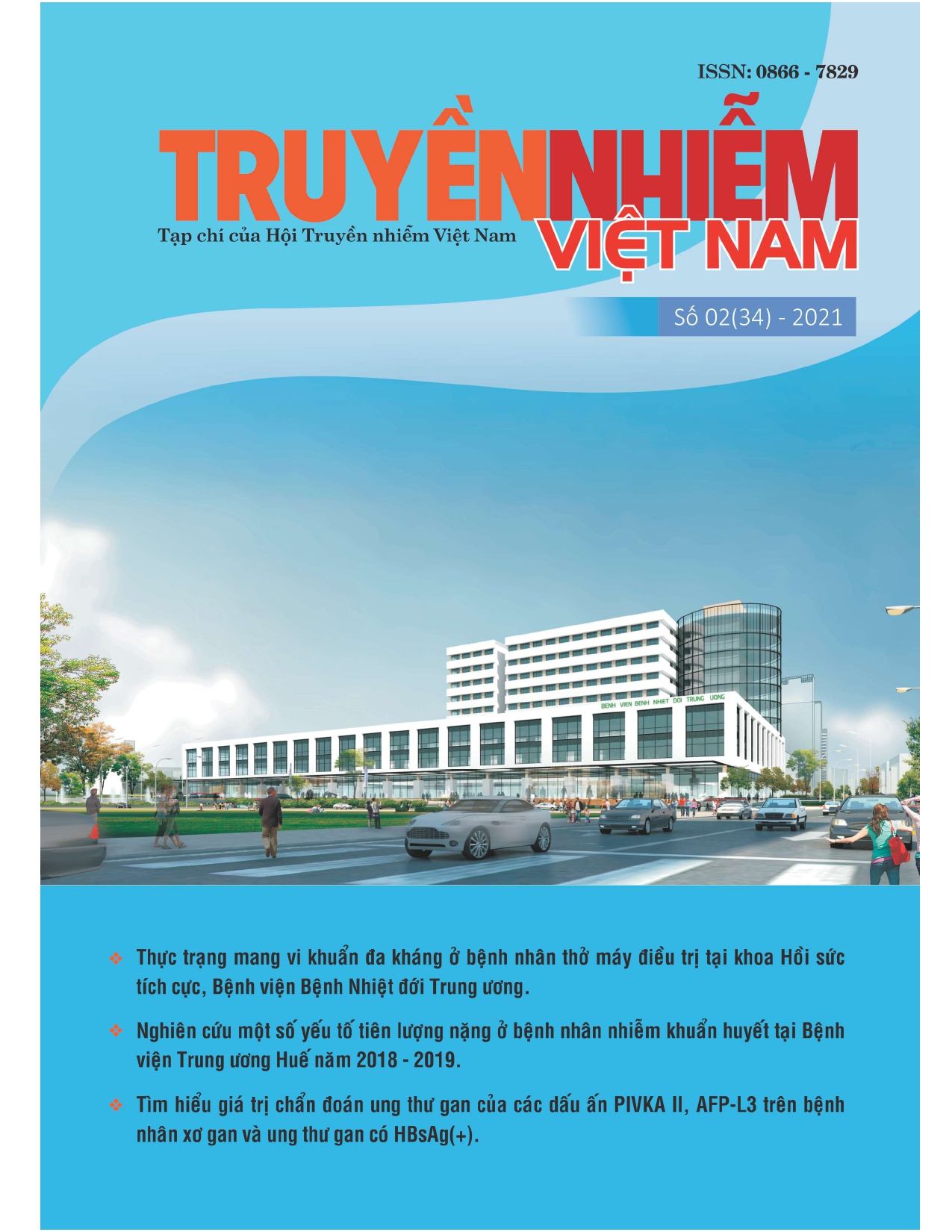BACTERIAL URINARY TRACT INFECTION IN PATIENTS TREATED AT NGHE AN GENERAL FRIENDSHIP HOSPITAL, YEAR 2020
Main Article Content
Abstract
Objectives: This study is to determine the infection rate and antibiotic sensitivity of bacteria strains isolated from the patient's urine specimens admitted at Nghe An General Friendship Hospital in 2020.
Subjects and methods: Bacteria strains that cause urinary tract infections were isolated at Nghe An General Friendship Hospital from 1/2020 to 12/2020. Research design: Cross-sectional descriptive study.
Results: Among 462 bacterial strains causing UTIs, E. coli was the most common accounted for 40.26%, the second was P. aeruginosa as with 15.15%; K. pneumoniae was of 12.99% and Enterococcus sp. was of 10.39%. E. coli was resistant to cephalosporins from 57.53 to 65.05%, quinolones from 58.06 to 60.75% but they were still highly sensitive to carbapenem and fosfomycin from 87.63 to 90.86%. Half of E. coli strains produced ESBL (Extended spectrum beta-lactamase). K. pneumoniae was resistant to cephalosporins, quinolones ranging from 66.67% - 75% and resistant to carbapenem from 45 to 50%. P. aeruginosa was resistant to the tested antibiotics from 47.14% to 62.86%. Enterococcus sp. was resistant to quinolone antibiotics with the rate of 70.83% and resistant to vancomycin (8.33%). There was no record of Enterococcus resistant to linezolid.
Conclusions: Common bacteria causing UTIs are E. coli, K. pneumoniae, P. aeruginosa, Enterococcus sp. The isolated bacteria were resistant to many commonly used antibiotics to varying degrees. Especially, strains of Gram-negative bacteria were resistant to carbapenem and strains of Gram-positive were resistant to vancomycin.
Article Details
Keywords
Urinary tract infections, E. coli, P. aeruginosa, Enterococcus sp, Klebsiella


